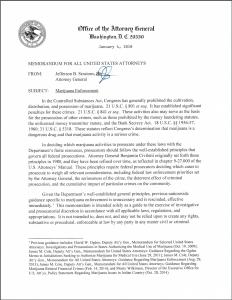Attorney General Jeff Sessions Rescinds Federal Memoranda Regarding Marijuana Enforcement
January 4, 2018 – Today, United States Attorney General Jefferson B. Sessions, III rescinded a number of federal memoranda that provided guidance regarding marijuana and medical marijuana enforcement. Included in the memos that were rescinded is the Cole Memo, which laid out eight marijuana enforcement priorities for federal prosecutors in light of the fact that a number of states had moved to legalize cannabis. Also withdrawn are federal memoranda providing guidance to banks when dealing with customers whose money may be derived from a cannabis business, as well as a federal memoranda regarding enforcement of federal marijuana laws in Indian Country.
The full list of guidance documents that have been withdrawn, effective immediately, includes: David W. Ogden, Deputy Att’y Gen., Memorandum for Selected United States Attorneys: Investigations and Prosecutions in States Authorizing the Medical Use of Marijuana (Oct. 19. 2009); James M. Cole, Deputy Att’y Gen., Memorandum for United States Attorneys: Guidance Regarding the Ogden Memo in Jurisdictions Seeking to Authorize Marijuana for Medical Use (June 29,2011); James M. Cole, Deputy Att’y Gen., Memorandum for All United States Attorneys: Guidance Regarding Marijuana Enforcement (Aug. 29, 2013); James M. Cole. Deputy Att’y Gen., Memorandum for All United States Attorneys: Guidance Regarding Marijuana Related Financial Crimes (Feb. 14, 2014); and Monty Wilkinson, Director of the Executive Office for U.S. Att’ys, Policy Statement Regarding Marijuana Issues in Indian Country (Oct. 28, 2014).
All of the withdrawn memoranda, which established a policy of non-interference in states that have legalized cannabis provided that specific enforcement priorities are observed, were issued during the Obama administration. They have allowed the cannabis industry to grow into legitimate industry relatively free of federal prosecution in several states, and have freed up federal resources to fight violent and more serious crimes. Prior to these memos, DEA raids of cannabis businesses were more frequent, and some fear that with the memos gone the raids will return. (For more information about Americans for Safe Access’ Raid Response Campaign, click here.)
In place of the memoranda that were rescinded, Attorney General Sessions issued a new one-page memorandum for all United States Attorneys, entitled “Marijuana Enforcement,” that reads as follows:
In the Controlled Substances Act, Congress has generally prohibited the cultivation, distribution, and possession of marijuana. 21 U.S.C. § 801 et seq. It has established significant penalties for these crimes. 21 U.S.C. § 841 el seq. These activities also may serve as the basis for the prosecution of other crimes, such as those prohibited by the money laundering statutes, the unlicensed money transmitter statute, and the Bank Secrecy Act. 18 U.S.C. §§ 1956-57, 1960; 31 U.S.C. § 5318. These statutes reflect Congress’s determination that marijuana is a dangerous drug and that marijuana activity is a serious crime.
In deciding which marijuana activities to prosecute under these laws with the Department’s finite resources, prosecutors should follow the well-established principles that govern all federal prosecutions. Attorney General Benjamin Civiletti originally set forth these principles in 1980, and they have been refined over time, as reflected in chapter 9-27.000 of the U.S. Attorneys’ Manual. These principles require federal prosecutors deciding which cases to prosecute to weigh all relevant considerations, including federal law enforcement priorities set by the Attorney General, the seriousness of the crime, the deterrent effect of criminal prosecution, and the cumulative impact of particular crimes on the community.
Given the Department’s well-established general principles, previous nationwide guidance specific to marijuana enforcement is unnecessary and is rescinded, effective immediately.’ This memorandum is intended solely as a guide to the exercise of investigative and prosecutorial discretion in accordance with all applicable laws, regulations, and appropriations. It is not intended to, does not, and may not be relied upon to create any rights, substantive or procedural, enforceable at law by any party in any matter civil or criminal.
Chapter 9-27.000 of the U.S. Attorneys’ Manual lays out Principles of Federal Prosecution that apply to all federal prosecutions. According to those principles, when deciding to initiate prosecution or decline charges, one of the factors that should be considered by the federal district attorney is whether a substantial federal interest would be served by the prosecution. Factors to be weighed in this calculus include: federal law enforcement priorities, including any federal law enforcement initiatives or operations aimed at accomplishing those priorities; the nature and seriousness of the offense; the deterrent effect of prosecution; the person’s culpability in connection with the offense; the person’s history with respect to criminal activity; the person’s willingness to cooperate in the investigation or prosecution of others; the interest of any victims; and the probable sentence of other consequences if the person is convicted (USAM 9-27.230).
Additionally, United States attorneys may modify or depart from the principles of federal prosecution in Chapter 9-27.000 of the U.S. Attorneys’ Manual as necessary in the interests of fair and effective law enforcement within the district. However, any significant modification or departure contemplated as a matter of policy or regular practice must be approved by the appropriate Assistant Attorney General and the Deputy Attorney General (USAM 9-27.140).
Earlier last year, Attorney General Sessions issued a separate memorandum regarding a new DOJ policy for charging and sentencing, in which he said that “prosecutors should charge and pursue the most serious, readily provable offense” including mandatory minimum offenses, even in nonviolent cases. This rolled back the Obama administration’s policy of lenience when it came to nonviolent drug offenses established by former Attorney General Eric Holder.
Within California, there are four federal judicial districts. The United States Attorney (USA) for each of California’s judicial districts is the chief federal prosecutor, responsible for overseeing the duties of federal prosecutors, known as Assistant United States Attorneys (AUSA’s), in that United States Attorney’s Office (USAO). After the “Sessions Memo”, the local United States Attorney for each district has significantly greater discretion in deciding whether and how to prosecute marijuana-related offenses in that particular judicial district.
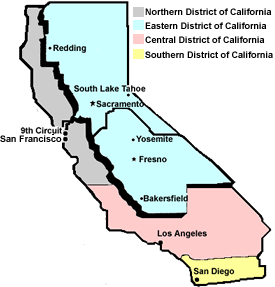
The Northern District of California, which stretches from Monterey County in the South to the state’s northern border with Oregon and west almost to Sacramento. (Outgoing United States Attorney Brian Stretch is making a sudden departure and a successor has yet to be named; word in the legal community is that former United States Attorney Joseph Russoinello may be named to the post, since he has twice previously successfully navigated the Senate Confirmation process.)
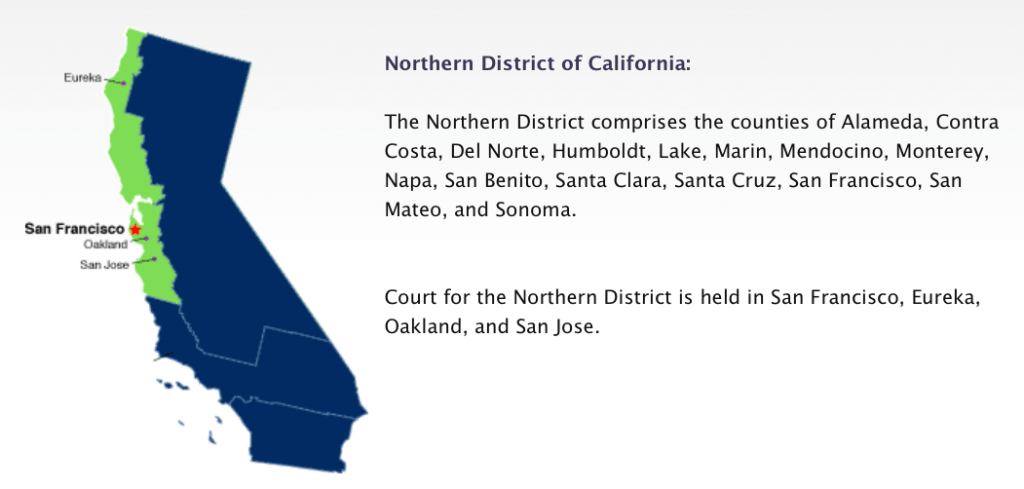
The Eastern District of California, which is the largest federal district in the state, encompasses most of the Central Valley, the Sacramento Valley, and the Sierra Nevada region up to the Oregon border. It is led by United States Attorney McGregor “Greg” Scott, who has been previously criticized by California NORML for leading an aggressive crackdown on medical marijuana in the Eastern District. Hopefully, United States Attorney Scott’s position has evolved now that medicinal and adult-use cannabis has been legalized in California.
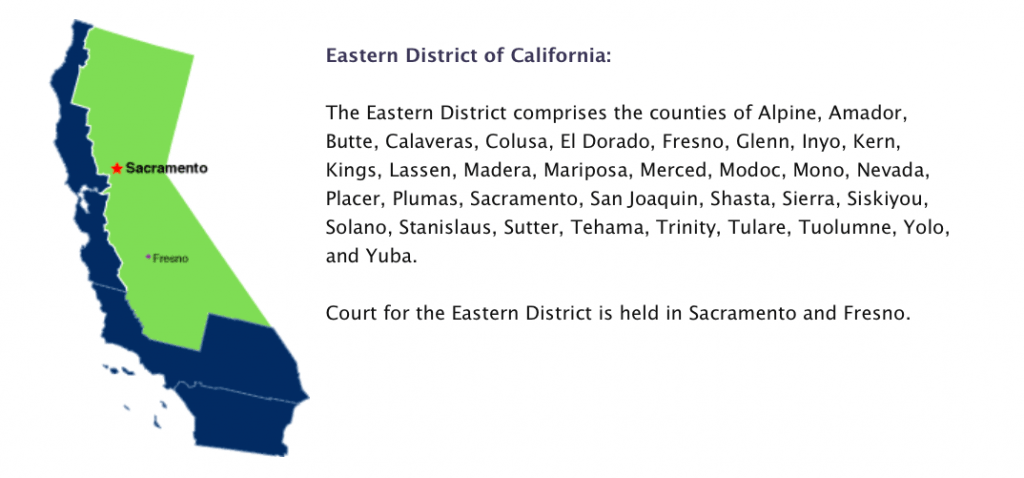
The Central District of California encompasses the Los Angeles metropolitan area and stretches from Orange County in the south, up to San Luis Obispo County in the north, and San Bernardino County in the east. It is led by former federal prosecutor and newly-appointed United States Attorney Nicola “Nick” Hanna.
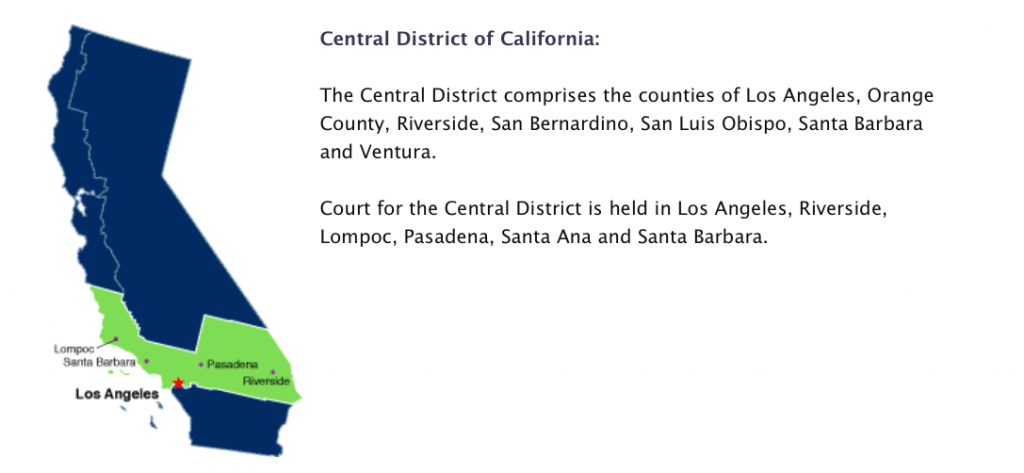
The Southern District of California, includes San Diego and Imperial Counties, and is led by United States Attorney Adam Braverman, a former federal drug prosecutor who aggressively prosecuted members of the Sinola Cartel. Reportedly, USA Braverman issued the following statement:
“The Department of Justice is committed to reducing violent crime and enforcing the laws as enacted by Congress. The cultivation, distribution, and possession of marijuana has long been and remains a violation of federal law. We will continue to utilize long-established prosecutorial priorities to carry out our mission to combat violent crime, disrupt and dismantle transnational criminal organizations, and stem the rising tide of the drug crisis.”
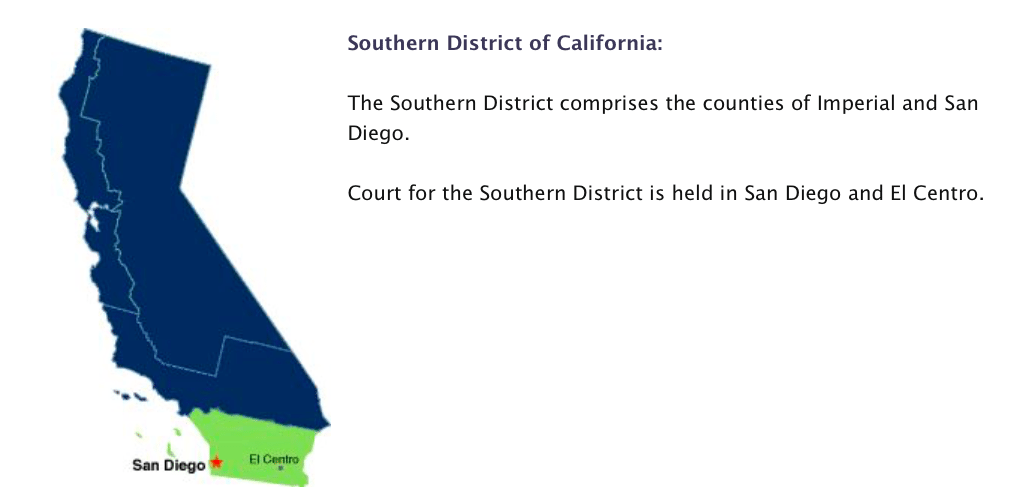
Our office has written letters to the four U.S. Attorneys in California to see what their interpretation of the new memorandum from Sessions is, and how they will approach marijuana enforcement in their district considering that the State of California has legalized marijuana for medical and recreational use, and just launched its statewide legal cannabis licensing system. We will keep our readers informed about any responses we receive.
While the rescinding of the Cole Memo may seem scary, it’s important to remember that these federal memoranda were never binding, and could have been revoked at any moment. Thus, they never really provided much protection. The only other protection existing in federal law is the Rohrabacher-Blumenauer Amendment, which prevents the U.S. Department of Justice from using funds from the federal budget to prosecute individuals who are acting in compliance with state medical cannabis laws. However, this protection is limited to medical cannabis, and it expires on January 19.
Despite this change in federal policy, California’s state cannabis enforcement agencies are moving ahead with legalization. Lori Ajax, the Chief of the California Bureau of Cannabis Control, said in a statement today:
“The administration is conferring with the California Attorney General and other states in response to this action. We expect the federal government to respect the rights of states and the votes of millions of people across America and if they won’t, Congress should act. Regardless, we’ll continue to move forward with the state’s regulatory processes covering both medicinal and adult-use cannabis consistent with the will of California’s voters, while defending our state’s laws to the fullest extent.”
This is a perfect example of why cannabis has to be rescheduled (or better yet, descheduled), as it currently remains a Schedule I substance under the federal Controlled Substances Act (CSA). Attorney General Sessions even stated in his new memo released today: “These statutes [the CSA, the Bank Secrecy Act, and money laundering statutes] reflect Congress’ determination that marijuana is a dangerous drug and that marijuana activity is a serious crime.” Yet the facts are clear: marijuana should not be in Schedule I. It does not meet the definition of a schedule I drug, which is a substance with a high potential for abuse and no accepted medical use. The accepted medical uses for cannabis are numerous, and the potential for abuse is nowhere near as high as it is for drugs in less restrictive classifications. Contact your elected officials today and ask them to reform federal law to align with public opinion and facts about cannabis.
When Donald Trump ran for president, one of his campaign promises was that he would respect states’ decision to legalize cannabis. Thus, Sessions’ action may result in backlash from both the progressive community as well as hardline Trump supporters who believe in states’ rights. A recent poll showed that 73% of voters did not want the federal government to interfere with states’ marijuana laws. 57% of California voters voted “Yes” on Proposition 64 in 2016 to legalize cannabis for adult use.
This is a developing story. Stay tuned for more updates.
This information is provided as a public service and is not intended as legal advice.

